Rock landscaping transforms outdoor spaces into stunning, low-maintenance environments that combine natural beauty with practical functionality. From minimalist zen gardens to modern drought-resistant designs, rocks offer endless possibilities for creating unique landscape features. Whether you're working with a small courtyard or expansive backyard, incorporating different rock types, sizes, and arrangements can add texture, structure, and visual interest to any property. These versatile materials require minimal upkeep while providing year-round appeal, making them perfect for busy homeowners seeking beautiful outdoor spaces without constant maintenance demands.
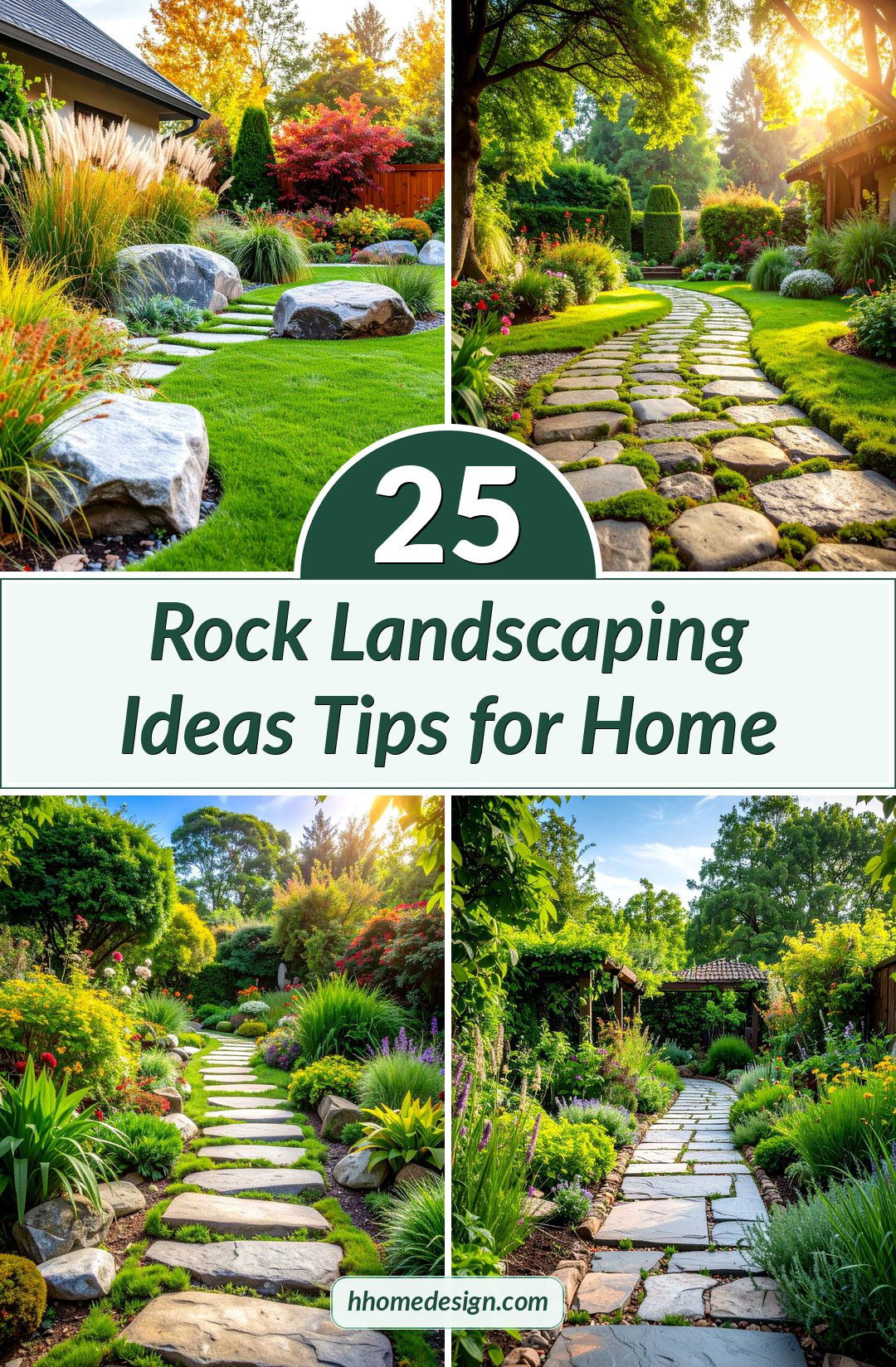
1. Japanese Zen Rock Garden with Raked Gravel
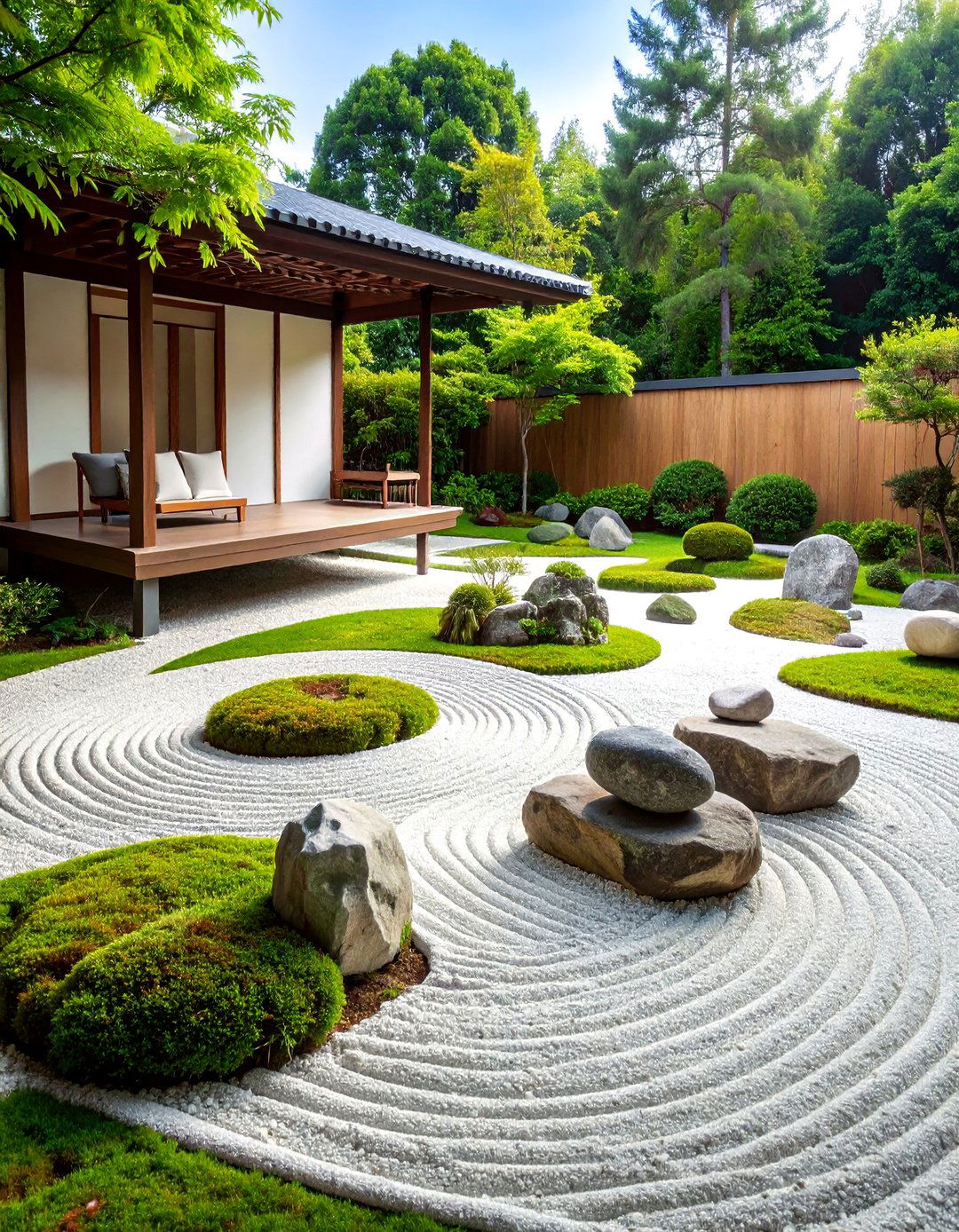
Transform your outdoor space into a peaceful meditation sanctuary with this timeless Japanese-inspired design. Create distinct zones using large weathered stones as focal points, surrounded by fine white or gray gravel raked into flowing patterns that represent water movements. Position stepping stones strategically to guide visitors through the contemplative space while maintaining the garden's serene atmosphere. Add minimal plantings like moss or small evergreen shrubs to soften harsh edges without overwhelming the minimalist aesthetic. This low-maintenance design promotes mindfulness while creating a striking visual centerpiece that remains beautiful throughout all seasons, requiring only occasional raking to maintain crisp patterns.
2. Modern Drought-Tolerant Xeriscape with Native Rocks

Design a sustainable landscape that conserves water while showcasing natural beauty through strategic rock placement and drought-resistant plants. Combine decomposed granite pathways with clusters of local fieldstone boulders, creating natural-looking groupings that complement your regional environment. Integrate native succulents, ornamental grasses, and desert-adapted shrubs between rock formations for color and texture without excessive water needs. Use smaller river rocks as mulch around plant bases to retain soil moisture and suppress weeds effectively. This environmentally conscious approach reduces maintenance requirements while supporting local ecosystems, proving that sustainable landscaping can be both practical and visually stunning for modern homeowners.
3. River Rock Dry Creek Bed for Natural Drainage

Create an attractive drainage solution that mimics nature's own water management systems using varied sizes of smooth river rocks. Design meandering channels that direct rainfall away from structures while adding organic curves to your landscape design. Layer large boulders as anchor points with medium river stones filling the main channel, finishing with smaller pebbles along edges for realistic water flow patterns. Plant native grasses and moisture-loving perennials along the banks to create natural-looking transitions between the dry creek and surrounding lawn areas. This functional feature solves drainage problems while adding visual interest that looks beautiful even during dry periods.
4. Flagstone Pathway with Pea Gravel Joints

Develop elegant walkways using natural flagstone pavers separated by contrasting pea gravel for a sophisticated yet accessible design approach. Select irregularly shaped flagstones in complementary colors that harmonize with your home's exterior materials and existing landscape features. Fill joints with fine pea gravel in neutral tones, creating clean lines while allowing for proper drainage and easy maintenance. Edge pathways with larger stones or planted borders to define the walking surface and prevent gravel migration into surrounding garden areas. This classic combination provides durable, slip-resistant surfaces that age gracefully while maintaining professional appearance for both formal and casual landscape settings.
5. Boulder Garden Focal Point with Ornamental Grasses
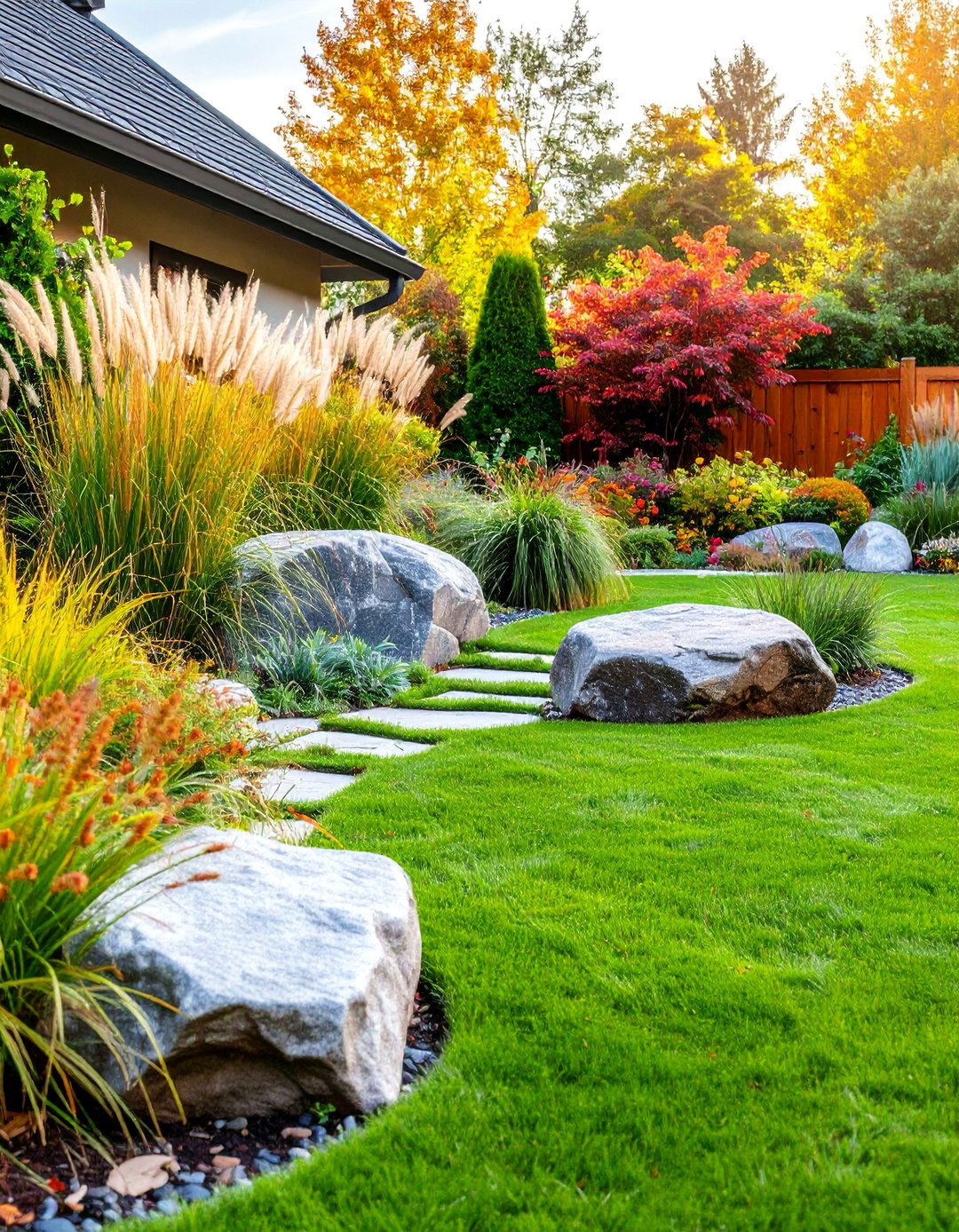
Establish dramatic visual anchors using strategically placed large boulders surrounded by flowing ornamental grasses for dynamic seasonal interest. Position three to five substantial stones in asymmetrical groupings, varying heights and angles to create natural-looking formations that draw the eye across the landscape. Plant ornamental grasses like fountain grass, blue fescue, or pampas grass around boulder bases, allowing their movement and texture to soften the stone's hard edges throughout the growing season. Add smaller accent rocks and drought-tolerant perennials to complete the composition. This design provides year-round structure while offering changing seasonal displays through grass coloration and movement patterns.
6. Crushed Stone Patio with Integrated Seating
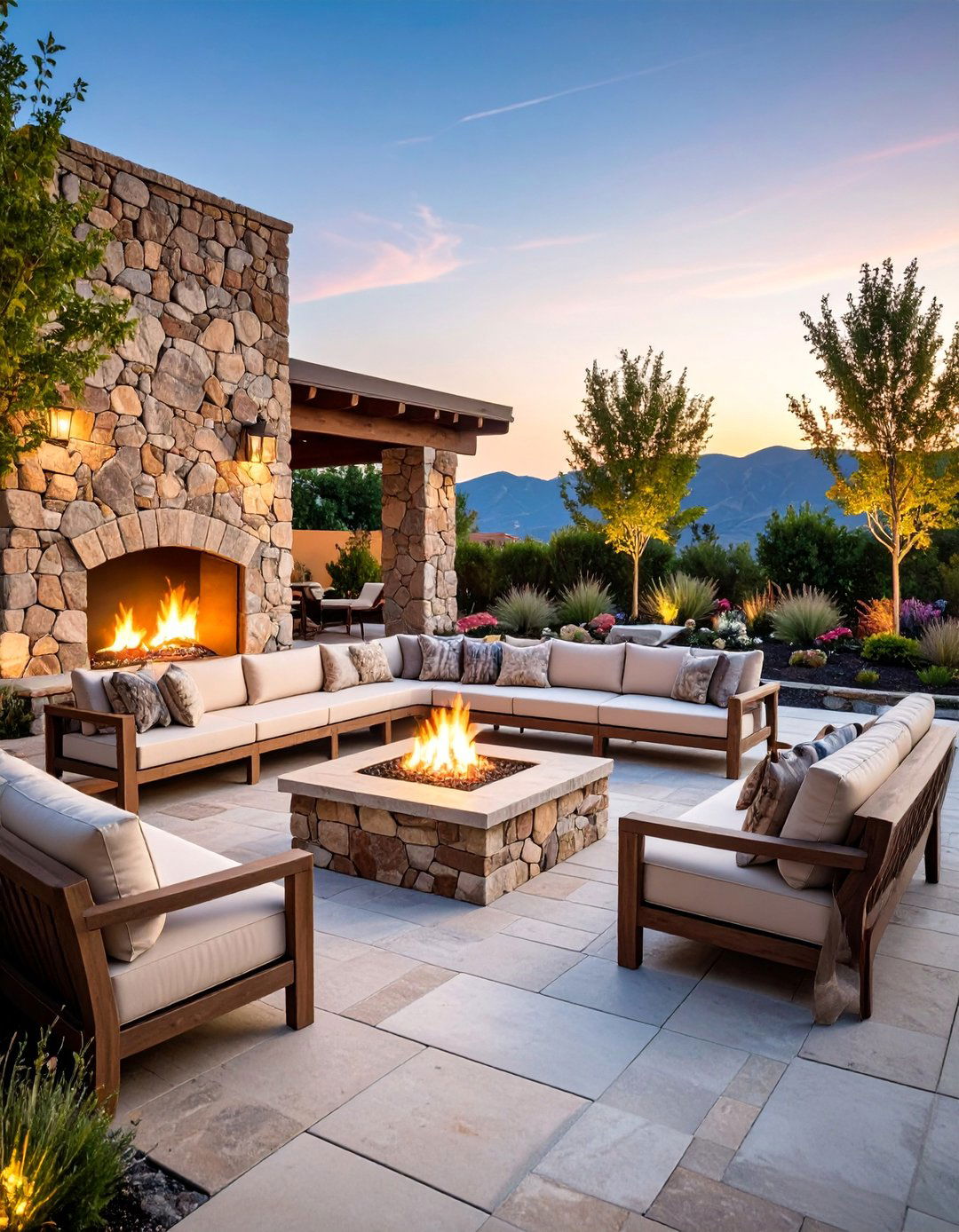
Build a contemporary outdoor living space using compacted crushed stone surfaces with built-in stone seating for comfortable entertaining areas. Level and prepare the base thoroughly, then install permeable crushed granite or limestone that compacts into firm, walkable surfaces suitable for furniture and foot traffic. Incorporate natural stone benches or boulder seating strategically around fire pits or water features to encourage gathering and conversation. Edge the patio with larger decorative stones or planted borders to define the space and prevent material migration. This cost-effective approach creates sophisticated outdoor rooms that blend seamlessly with natural surroundings while providing practical entertainment spaces.
7. Lava Rock Mulch Garden with Drought Plants
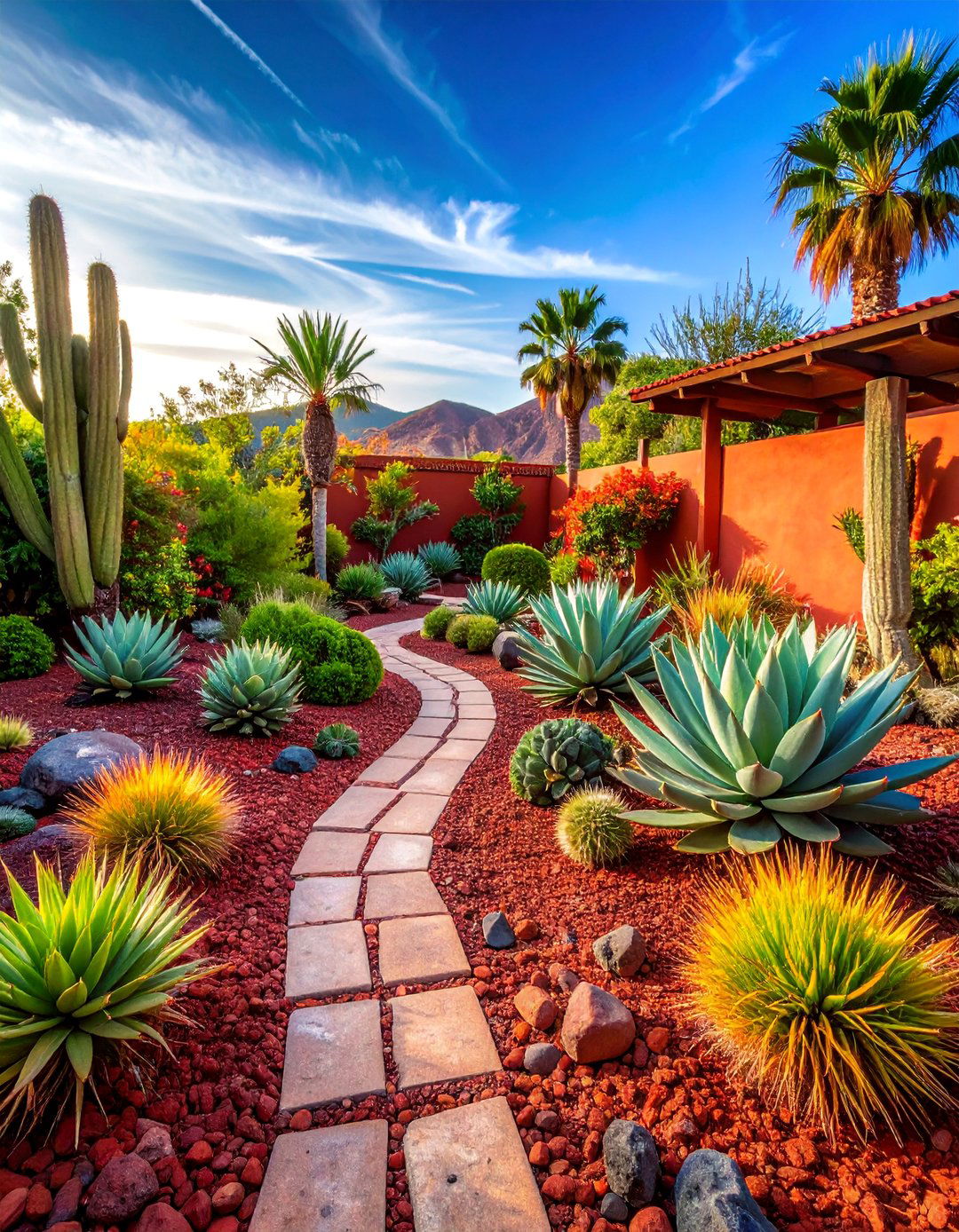
Design water-wise planting areas using lightweight lava rock as attractive, long-lasting mulch alternative around heat-loving plants and succulents. Choose red or black lava rock depending on your color preferences and existing landscape palette, spreading it generously around plant bases for optimal moisture retention. Select plants that thrive in well-draining conditions, such as agaves, sedums, and Mediterranean herbs that complement the volcanic rock's unique texture and appearance. This combination creates striking color contrasts while providing excellent drainage and thermal mass that benefits plant growth. The porous nature of lava rock allows air and water circulation while suppressing weeds effectively.
8. Decomposed Granite Courtyard with Accent Boulders

Construct intimate outdoor spaces using compacted decomposed granite surfaces accented with carefully placed specimen boulders for architectural interest. Prepare proper base materials and compact decomposed granite in thin layers, creating smooth, stable surfaces suitable for seating areas and walking zones. Position large accent stones asymmetrically throughout the space, using them as natural sculptures or informal seating options for casual gatherings. Add container plantings or small planted areas with drought-tolerant species to introduce color and softness without compromising the courtyard's clean, contemporary aesthetic. This design works particularly well for modern homes seeking low-maintenance outdoor living spaces.
9. Stepping Stone Garden Path with Ground Cover

Create enchanting walkways using natural stepping stones set within low-growing ground cover plants for a cottage garden aesthetic. Space flat stones appropriately for comfortable walking while allowing ground cover to fill gaps and create living carpets between stepping surfaces. Choose ground covers like creeping thyme, moss, or sedum that tolerate foot traffic while providing seasonal flowers or interesting foliage textures. Vary stone sizes and shapes slightly for natural appearance, ensuring each stone sits level and stable for safe passage. This approach softens hardscape elements while maintaining clear pathway definition through garden beds and landscape features.
10. Rock Border Edging with Colorful Perennials

Define garden beds and walkways using natural stone edging combined with vibrant perennial plantings for structured yet informal landscape borders. Select uniform-sized rocks that complement your home's materials, setting them partially into the ground for stability and natural appearance. Plant drought-tolerant perennials with varying heights, textures, and bloom times behind rock edging to create seasonal interest and wildlife habitat. Choose plants like lavender, black-eyed Susan, and ornamental grasses that provide long-lasting color while requiring minimal maintenance once established. This combination creates clear garden boundaries while supporting beneficial insects and adding fragrance to outdoor spaces.
11. Gravel Garden with Architectural Plantings

Develop sophisticated planted areas using decorative gravel as both growing medium and design element around structural plants with bold forms. Install proper drainage and select appropriate gravel sizes and colors that enhance rather than compete with plant selections for cohesive design results. Choose architectural plants like yuccas, ornamental grasses, and sculptural perennials that thrive in well-draining conditions while providing strong visual impact throughout seasons. Arrange plants in odd-numbered groupings with adequate spacing for mature growth, allowing gravel to flow between plantings as unifying design element. This contemporary approach reduces watering needs while creating striking modern garden compositions.
12. Stone Retaining Wall with Cascading Plants

Solve slope challenges while adding vertical interest using natural stone retaining walls topped with trailing plants for softened structural elements. Construct walls using locally sourced fieldstone or manufactured stone blocks, ensuring proper drainage and soil retention for long-term stability and plant health. Select cascading plants like creeping phlox, trailing rosemary, or sedums that spill gracefully over wall edges, creating natural transitions between hardscape and landscape elements. Add pockets of soil within wall construction for additional planting opportunities, transforming functional structures into living garden features. This approach maximizes planting space while providing necessary erosion control on challenging terrain.
13. Pebble Mosaic Accent Area with Water Feature

Design artistic focal points using arranged pebbles in decorative patterns combined with small water features for sensory garden experiences. Create geometric or organic mosaic designs using pebbles in contrasting colors and sizes, setting them in stable sand base for long-lasting artistic expressions. Incorporate bubbling fountains, small pools, or water basins within or adjacent to pebble areas, using the sound and movement of water to enhance the peaceful atmosphere. Surround these features with appropriate plantings that benefit from occasional moisture while complementing the artistic hardscape elements. This combination appeals to multiple senses while creating unique garden destinations.
14. Fieldstone Fire Pit Area with Gravel Seating
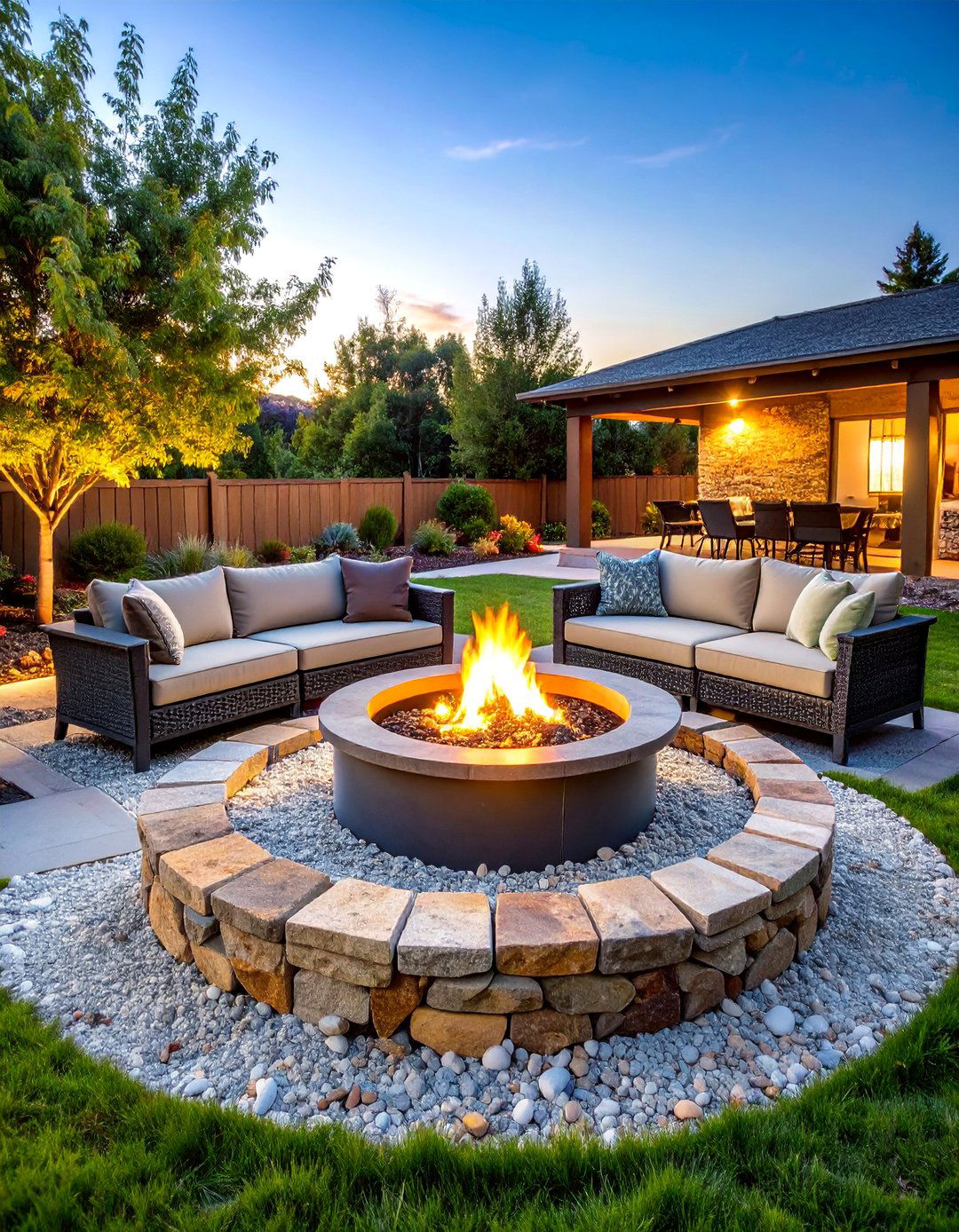
Establish cozy gathering spaces using natural fieldstone fire pits surrounded by gravel surfaces and integrated seating for comfortable outdoor entertaining. Construct fire pits using local stone materials that complement existing landscape features, ensuring proper ventilation and safety clearances from structures and plantings. Create surrounding seating areas using compacted gravel or pea stone surfaces that drain well and provide stable footing for moveable chairs and tables. Define the entertainment zone with larger stones or planted borders, creating intimate spaces that encourage conversation and relaxation. This design extends outdoor living seasons while providing focal points for evening gatherings.
15. Alpine Rock Garden with Mountain Plants
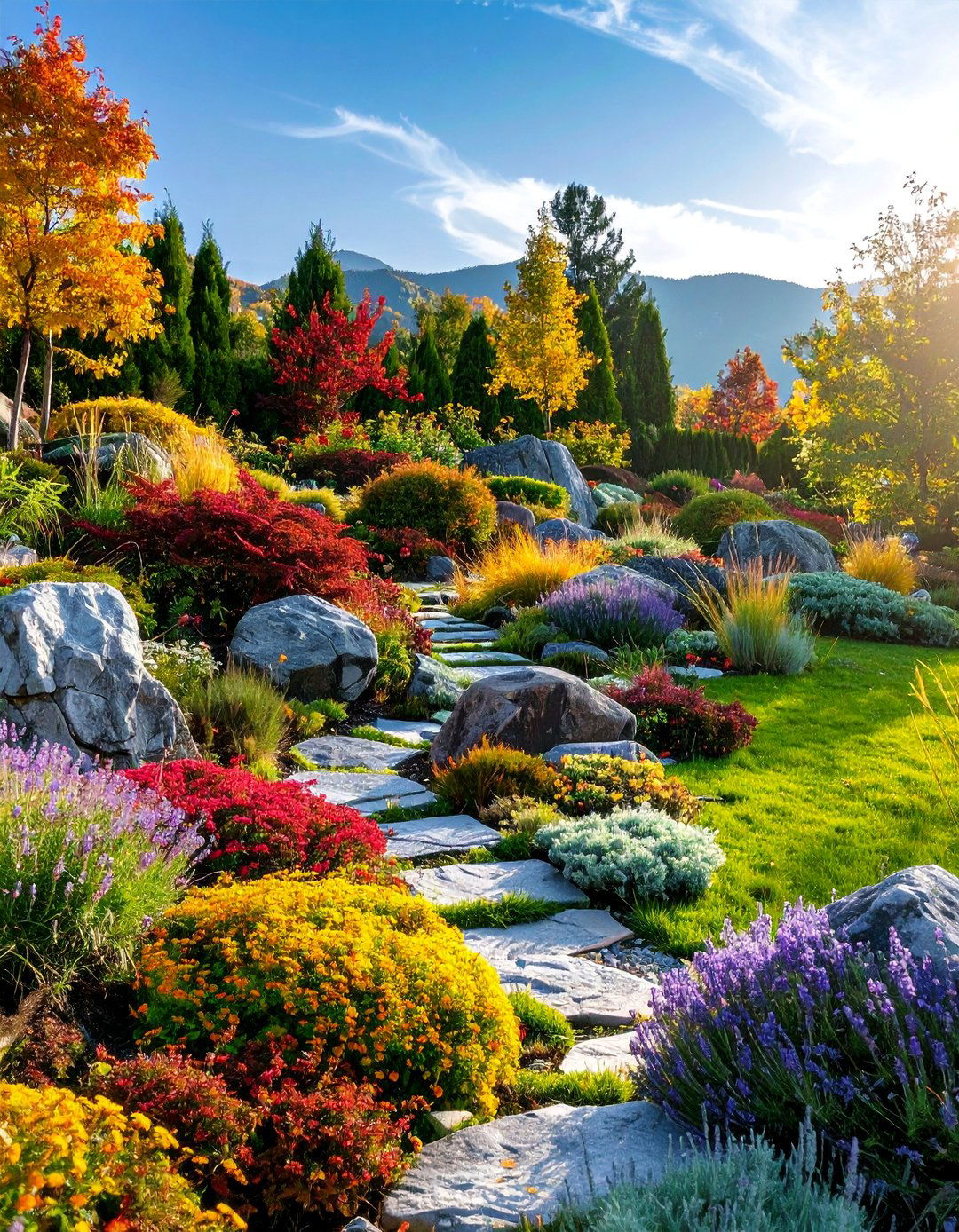
Recreate mountain environments using varied stone sizes combined with alpine plants that thrive in rocky, well-draining conditions for authentic high-altitude aesthetics. Arrange rocks to create natural-looking outcroppings and crevices, varying sizes from large boulders to small stones for realistic mountain terrain simulation. Select plants native to alpine environments such as sedums, alpine asters, and dwarf conifers that tolerate extreme conditions while providing seasonal interest. Ensure excellent drainage throughout the garden to prevent root rot in plants adapted to harsh mountain conditions. This specialized garden type requires minimal water once established while offering unique plant collections rarely seen in traditional landscapes.
16. Crushed Granite Driveway with Planted Borders
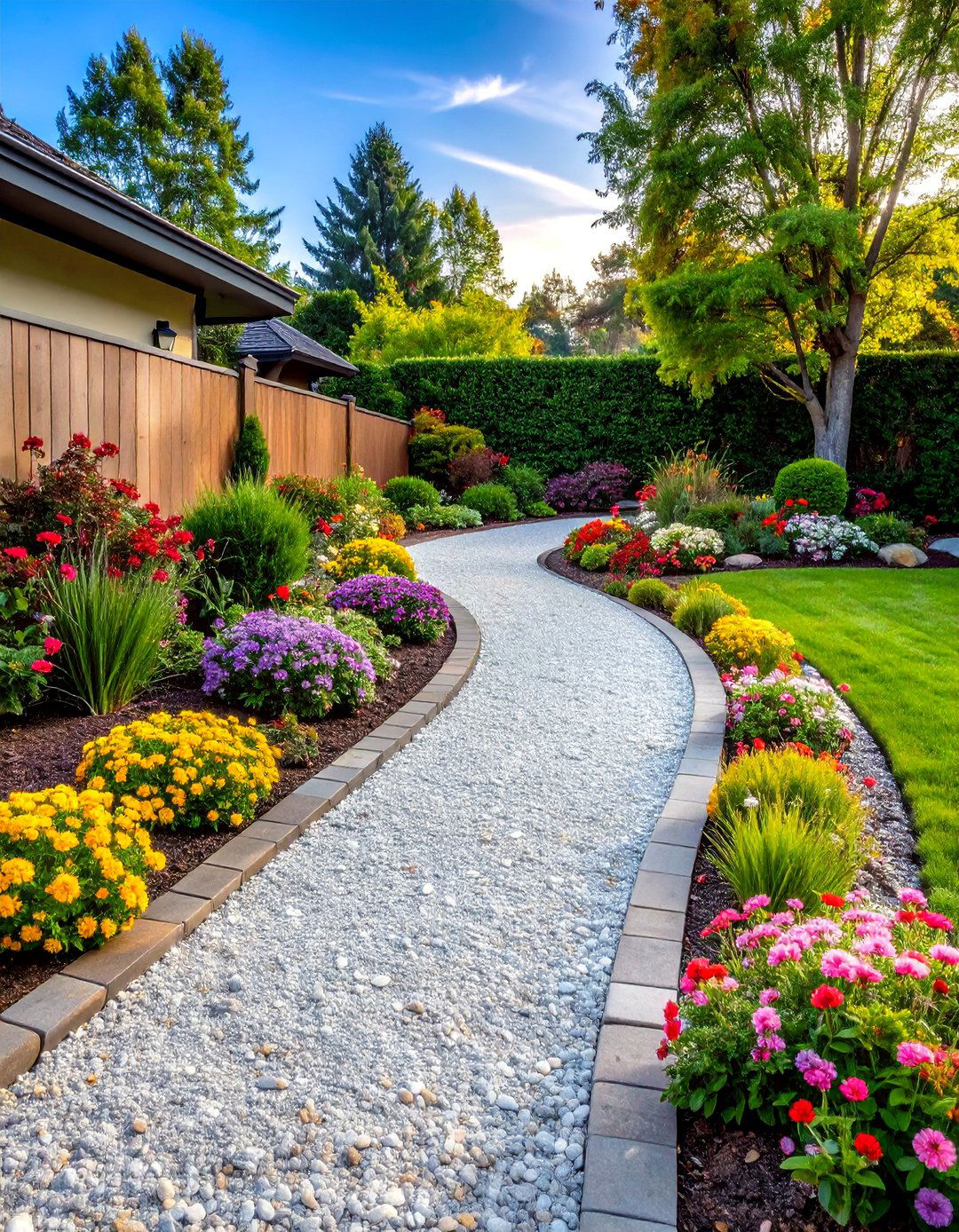
Design functional vehicle access using compacted crushed granite surfaces bordered with attractive plantings for enhanced curb appeal and environmental benefits. Install proper base preparation and edge restraints to maintain driveway integrity while allowing attractive planted borders to define and soften the driving surface. Select plants that tolerate occasional salt exposure and vehicle emissions while providing year-round interest through foliage, flowers, or berries. Include drainage considerations that direct runoff into planted areas rather than storm sewers, supporting sustainable stormwater management practices. This approach balances functionality with environmental responsibility while creating welcoming property entrances.
17. Beach Pebble Zen Garden with Bamboo Elements
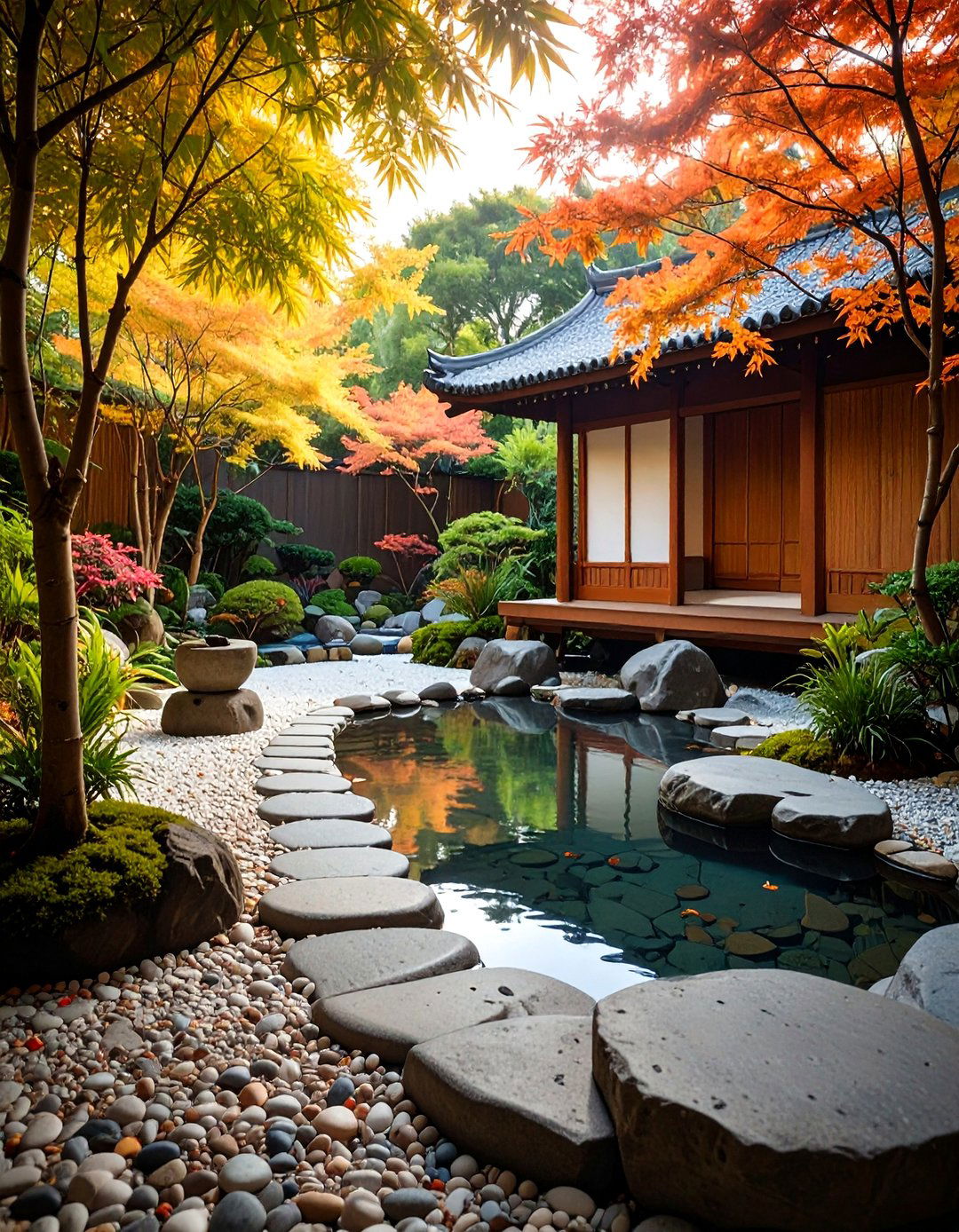
Create tranquil spaces inspired by coastal environments using smooth beach pebbles combined with bamboo features for Asian-influenced garden design. Arrange pebbles in flowing patterns that suggest water movement, varying sizes and colors subtly to maintain visual interest without overwhelming simplicity. Incorporate bamboo elements such as water features, screening panels, or sculptural installations that complement the peaceful atmosphere while providing privacy and wind protection. Add minimal plantings like bamboo groves, ornamental grasses, or simple groundcovers that enhance rather than distract from the garden's contemplative purpose. This design promotes relaxation while requiring minimal maintenance to preserve its serene character.
18. Slate Pathway with Herb Garden Borders
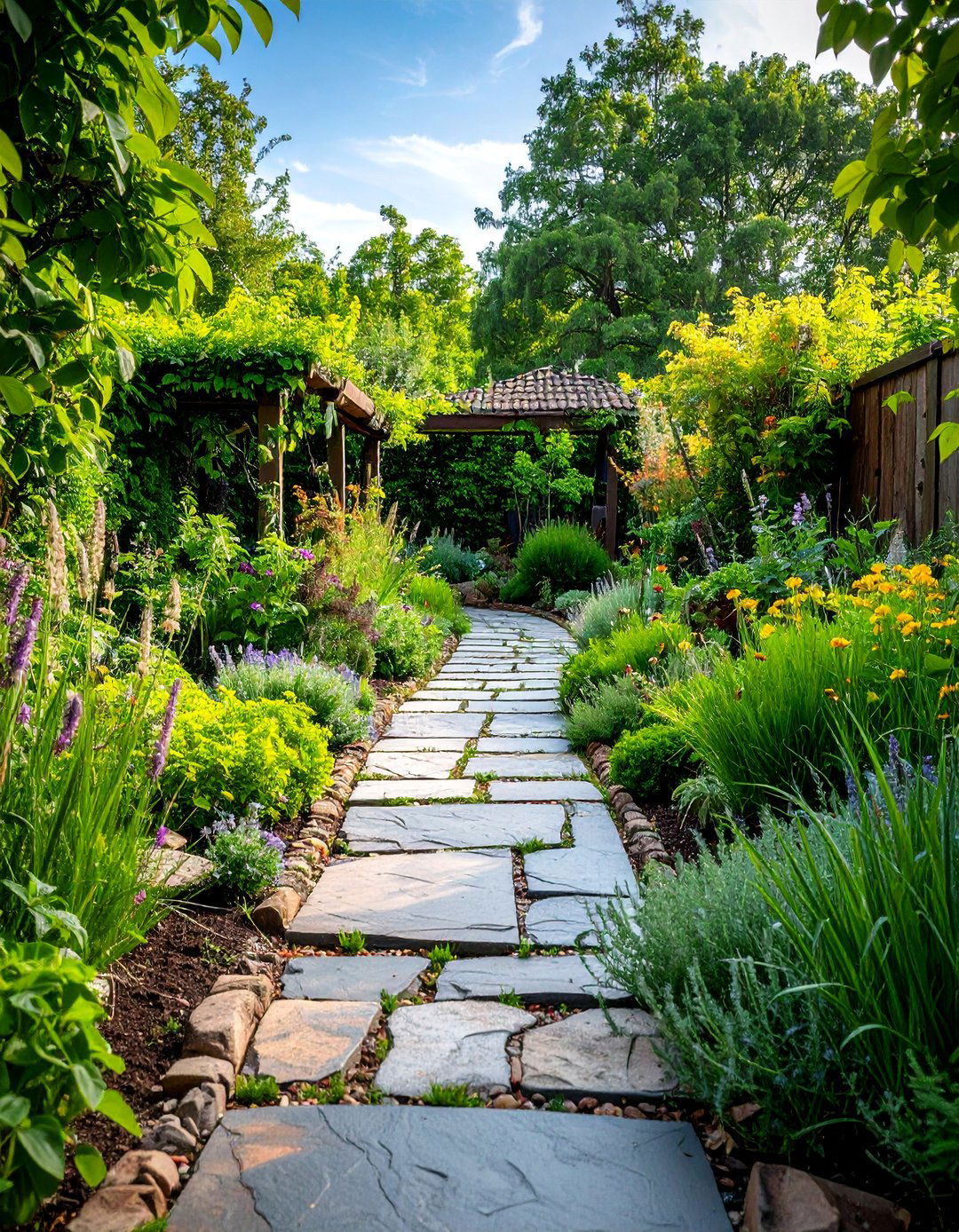
Develop functional walkways using natural slate stepping stones bordered by fragrant herb gardens for both beauty and culinary purposes. Install slate pieces with consistent thickness but varying sizes and shapes, creating organic pathway patterns that complement informal garden styles while providing stable walking surfaces. Plant culinary and aromatic herbs like rosemary, thyme, oregano, and lavender along pathway edges, allowing their fragrances to enhance the walking experience while providing fresh ingredients. Ensure proper spacing between slate pieces to accommodate herb growth while maintaining clear pathway definition through garden areas. This practical design combines transportation needs with productive gardening in attractive, low-maintenance arrangements.
19. River Rock Rain Garden with Native Wetland Plants
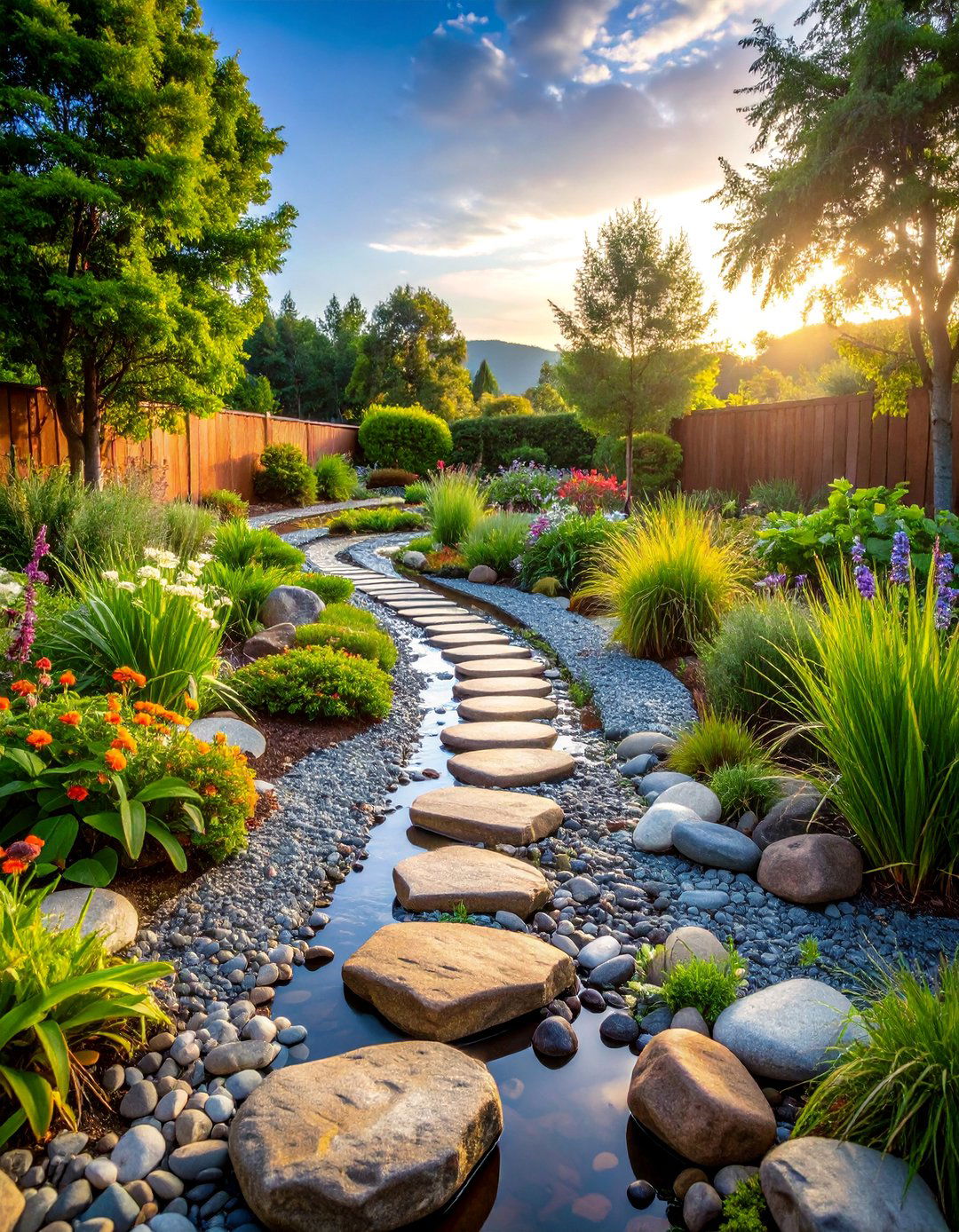
Manage stormwater runoff using strategically designed rain gardens featuring river rocks combined with native plants that thrive in periodic flooding conditions. Create shallow depressions that capture and slowly infiltrate rainwater, using varied river rock sizes to create attractive channels and retention areas. Select native wetland plants like cardinal flower, blue flag iris, and native sedges that tolerate both wet and dry conditions while providing wildlife habitat. Design overflow areas using larger stones to direct excess water safely away from structures during heavy rainfall events. This environmentally beneficial approach reduces flooding while creating beautiful garden features that support local ecosystems.
20. Cobblestone Patio with Moss Joints
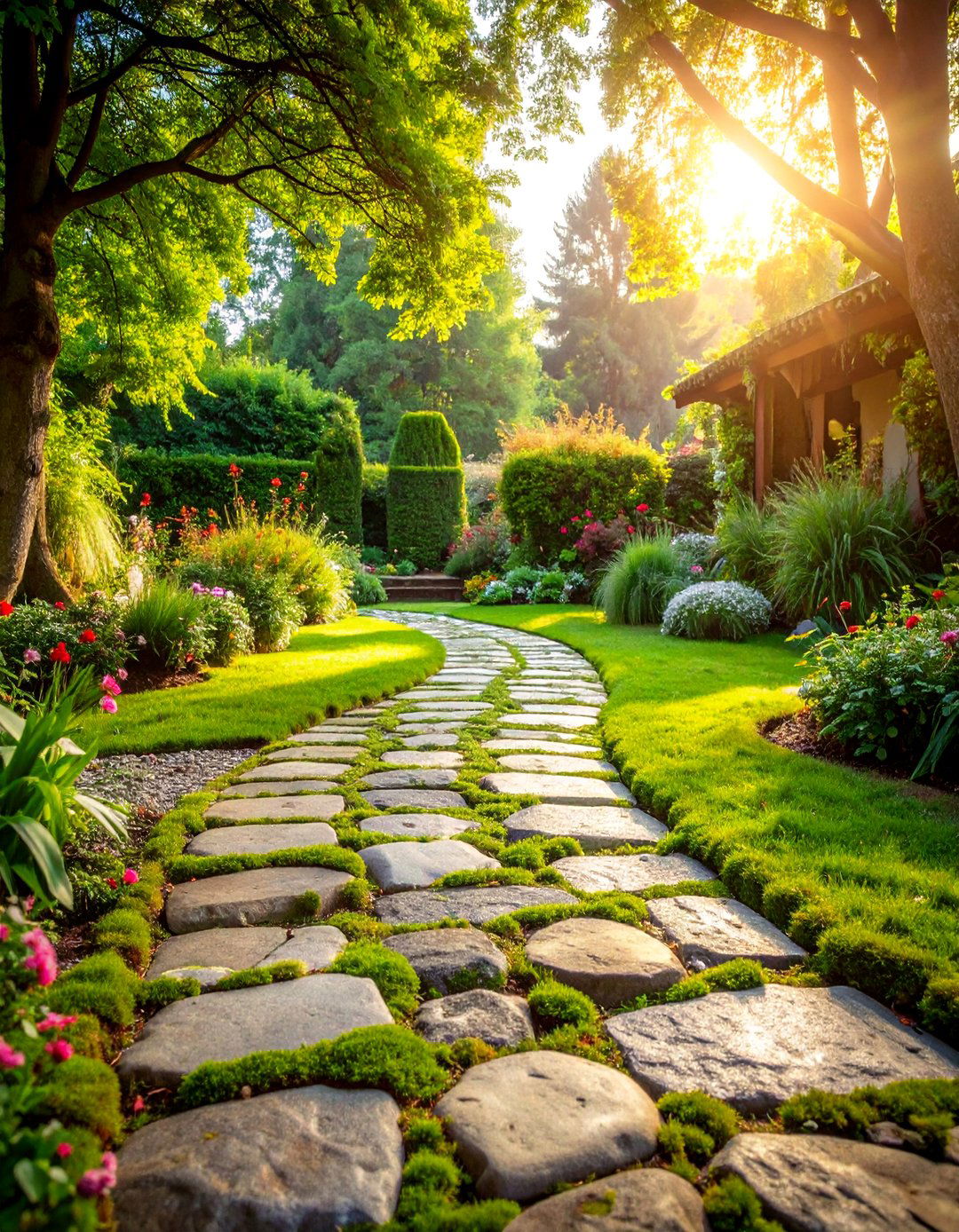
Establish old-world charm using traditional cobblestone pavers with moss growing in joints for authentic European garden aesthetics and character. Install cobblestones with appropriate spacing to encourage moss establishment while maintaining level, stable surfaces suitable for outdoor furniture and foot traffic. Encourage moss growth through proper moisture management and organic matter addition, creating living grout that softens the stone's appearance naturally. Select compatible furniture and garden features that complement the rustic aesthetic while providing comfortable outdoor living spaces for entertaining and relaxation. This timeless approach ages beautifully while requiring minimal maintenance beyond occasional moss cultivation and weed removal.
21. Granite Boulder Sculpture Garden with Ornamental Elements

Transform outdoor spaces into artistic galleries using large granite boulders as natural sculptures combined with complementary ornamental features. Position substantial granite specimens to create focal points and visual anchors throughout the landscape, considering viewing angles from multiple directions for maximum impact. Add complementary ornamental elements such as metal sculptures, water features, or architectural plants that enhance rather than compete with the stone's natural beauty. Design pathways and viewing areas that encourage appreciation of the sculptural elements while providing comfortable circulation through the garden space. This approach creates outdoor art galleries that appreciate in value while requiring minimal ongoing maintenance.
22. Pea Gravel Playground with Safe Edging
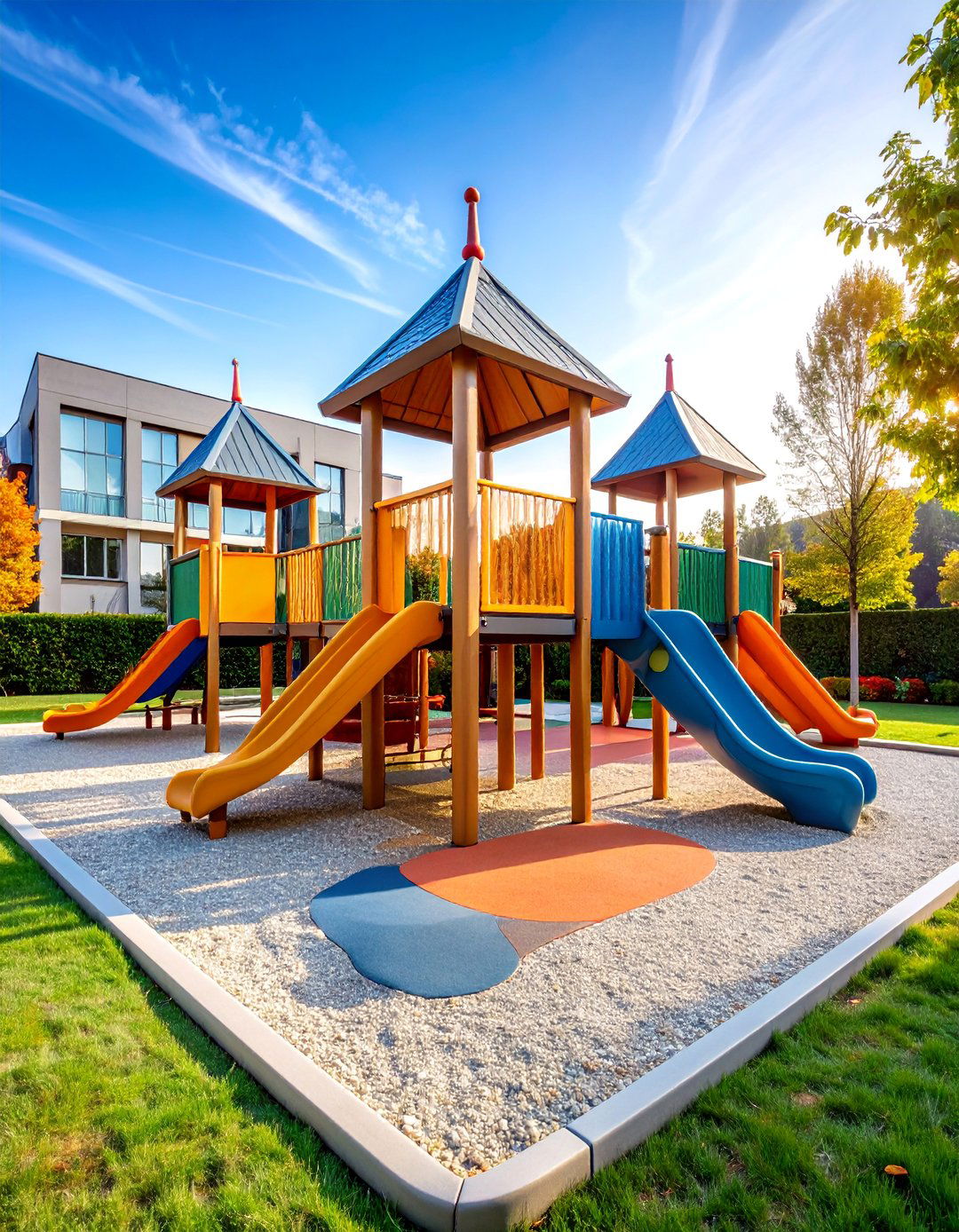
Design child-friendly outdoor spaces using pea gravel surfaces contained by safe edging materials for active play areas that drain well and resist compaction. Install appropriate depth of pea gravel over proper base materials, ensuring adequate drainage while providing cushioning for active play and equipment placement. Edge play areas with rounded timbers, rubber edging, or smooth stones that prevent gravel migration while eliminating sharp edges that could cause injury. Select playground equipment and features that complement the natural materials while providing age-appropriate challenges and entertainment. This approach creates attractive, low-maintenance play spaces that integrate seamlessly with overall landscape design while prioritizing child safety.
23. Weathered Stone Terracing with Cascade Plantings

Manage steep slopes using weathered stone terraces planted with cascading species for erosion control and visual interest on challenging terrain. Construct terraces using weathered fieldstone or similar materials that appear naturally aged, creating stable planting platforms while managing water flow and soil retention. Select plants with trailing or cascading growth habits like creeping phlox, trailing rosemary, or ornamental grasses that flow over terrace edges naturally. Design spacing and proportions that appear natural rather than engineered, using varied terrace heights and depths to accommodate different plant requirements. This functional approach transforms problematic slopes into attractive garden features while preventing erosion and enhancing property value.
24. Mixed Aggregate Courtyard with Succulent Displays
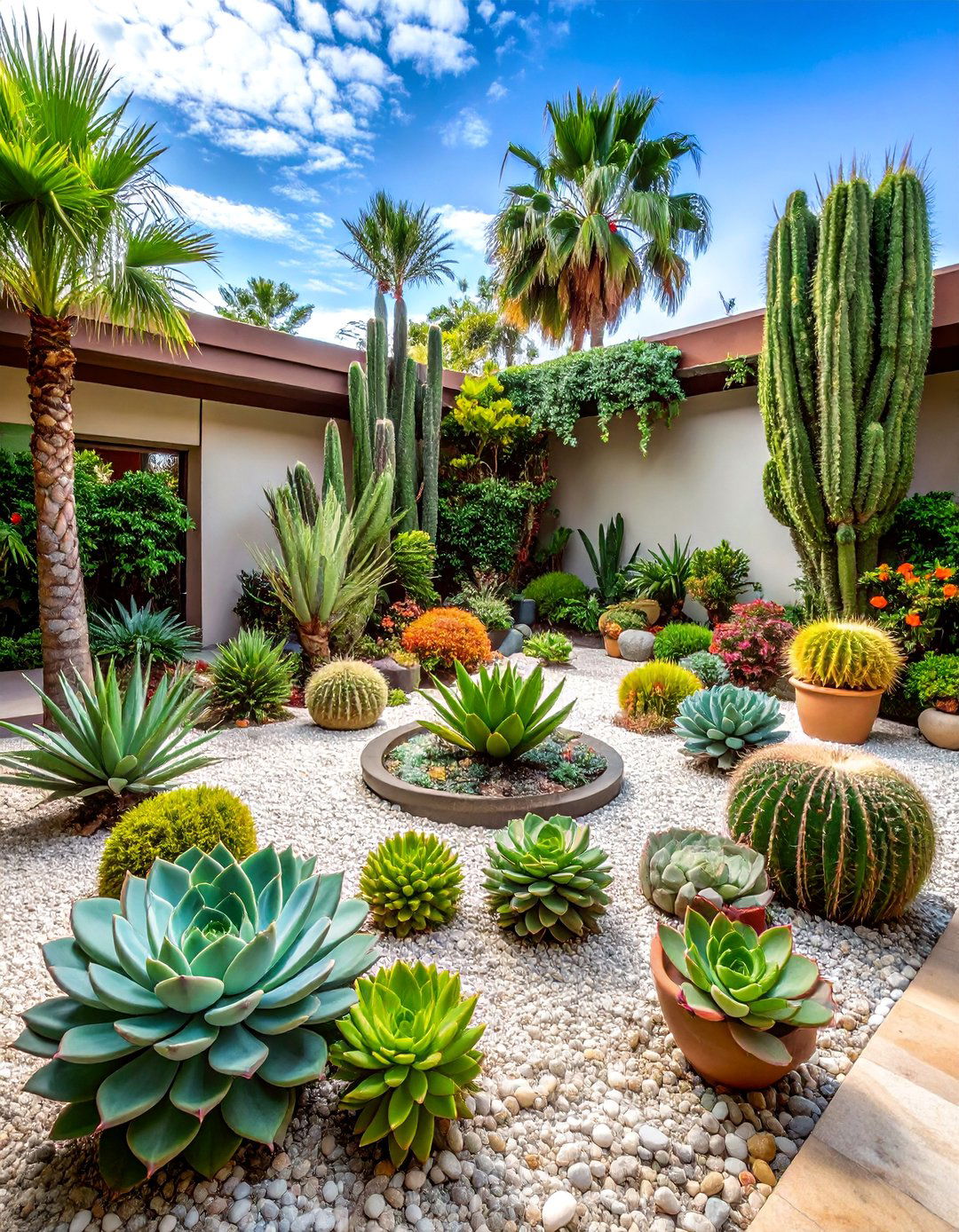
Create contemporary outdoor rooms using mixed decorative aggregates combined with striking succulent collections for modern, water-wise landscape design. Combine different aggregate materials such as decomposed granite, pea gravel, and crushed glass in geometric patterns that define functional zones within courtyard spaces. Display succulents in grouped containers or planted areas that showcase their sculptural forms while requiring minimal water and maintenance. Include seating areas and circulation paths that encourage use while highlighting the succulent collections and aggregate patterns as design features. This approach appeals to contemporary aesthetics while supporting sustainable gardening practices through drought-tolerant plant selections and minimal water requirements.
25. Volcanic Rock Garden with Desert Plants
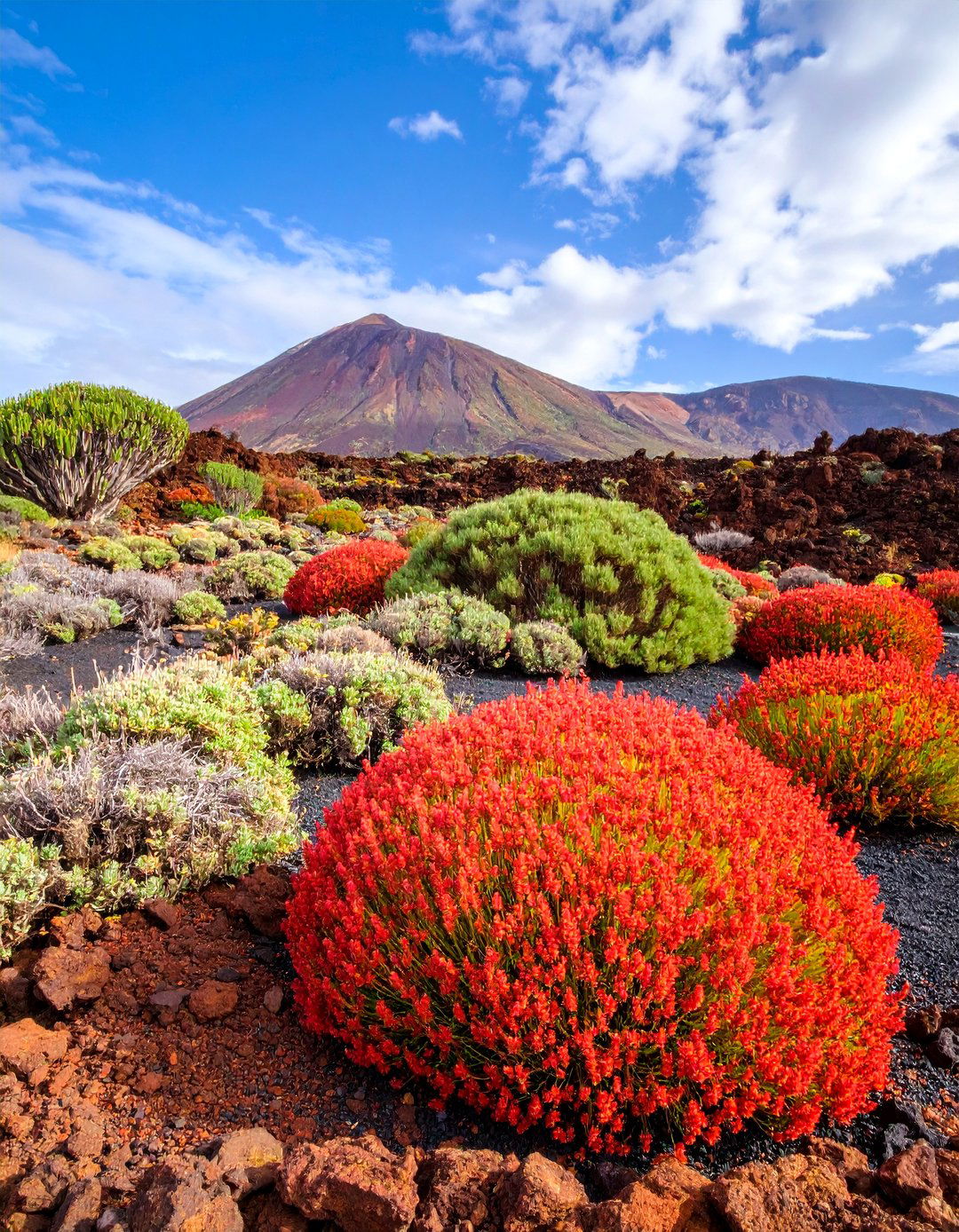
Establish dramatic desert-themed landscapes using volcanic rock materials combined with authentic desert plants for unique, water-conscious garden designs. Create naturalistic arrangements using red or black volcanic rocks that provide excellent drainage while offering striking color contrasts with desert plant selections. Choose authentic desert plants like barrel cactus, agaves, and desert wildflowers that thrive in the excellent drainage conditions provided by volcanic rock placement. Design the garden to capture and channel occasional rainfall effectively while protecting plants from excessive moisture that could cause root problems. This specialized approach creates unique landscape features that require minimal maintenance while supporting authentic desert plant communities rarely seen in traditional garden settings.
Conclusion:
Rock landscaping offers unlimited creative possibilities for transforming outdoor spaces into stunning, low-maintenance environments. These 25 design ideas demonstrate how different rock types, sizes, and arrangements can solve practical challenges while creating beautiful landscape features. From water-wise xeriscapes to contemplative zen gardens, rocks provide structure, texture, and year-round appeal that enhances any property. The key to successful rock landscaping lies in selecting appropriate materials for your climate, combining rocks with compatible plants, and creating designs that complement your home's architecture and your lifestyle needs.



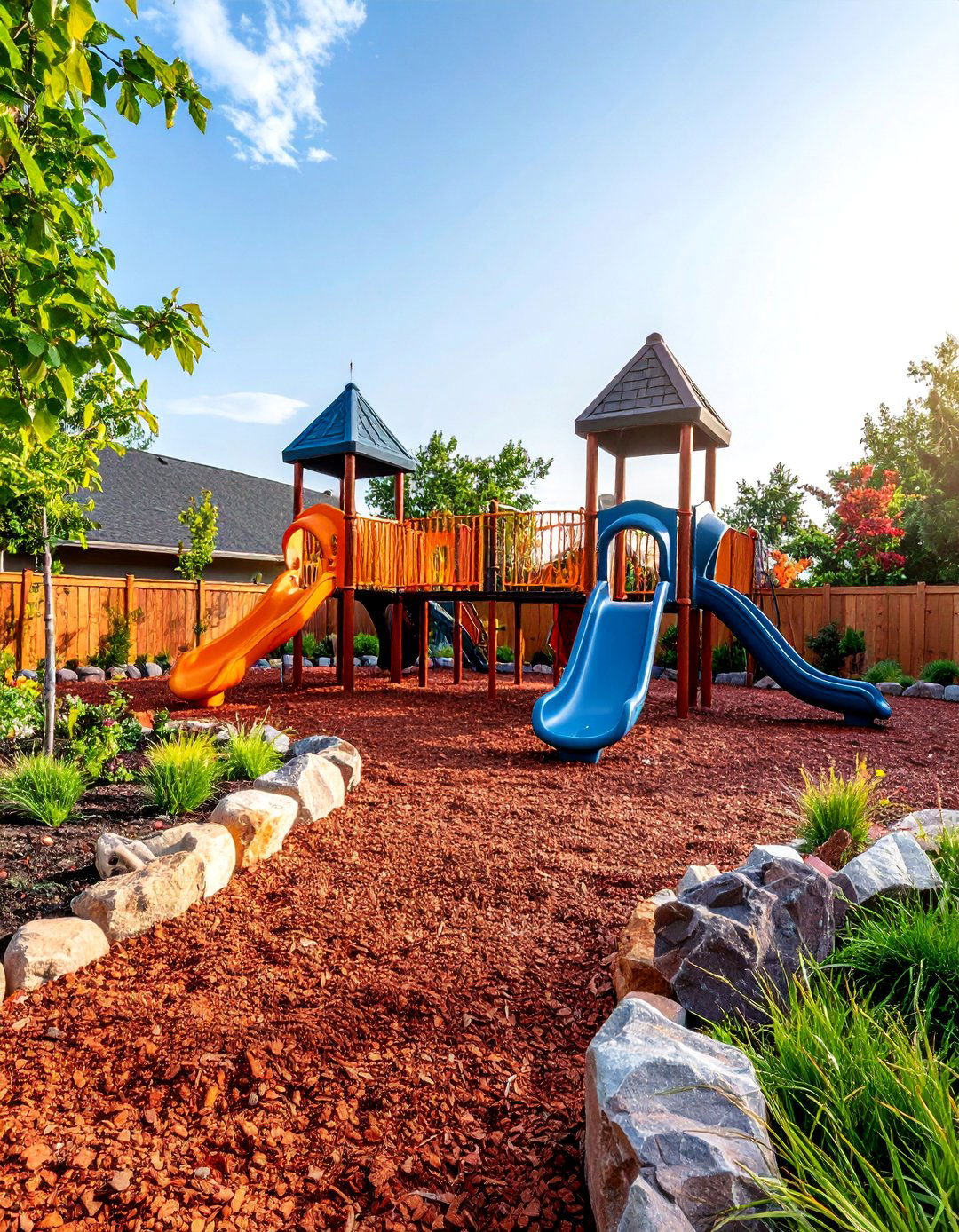
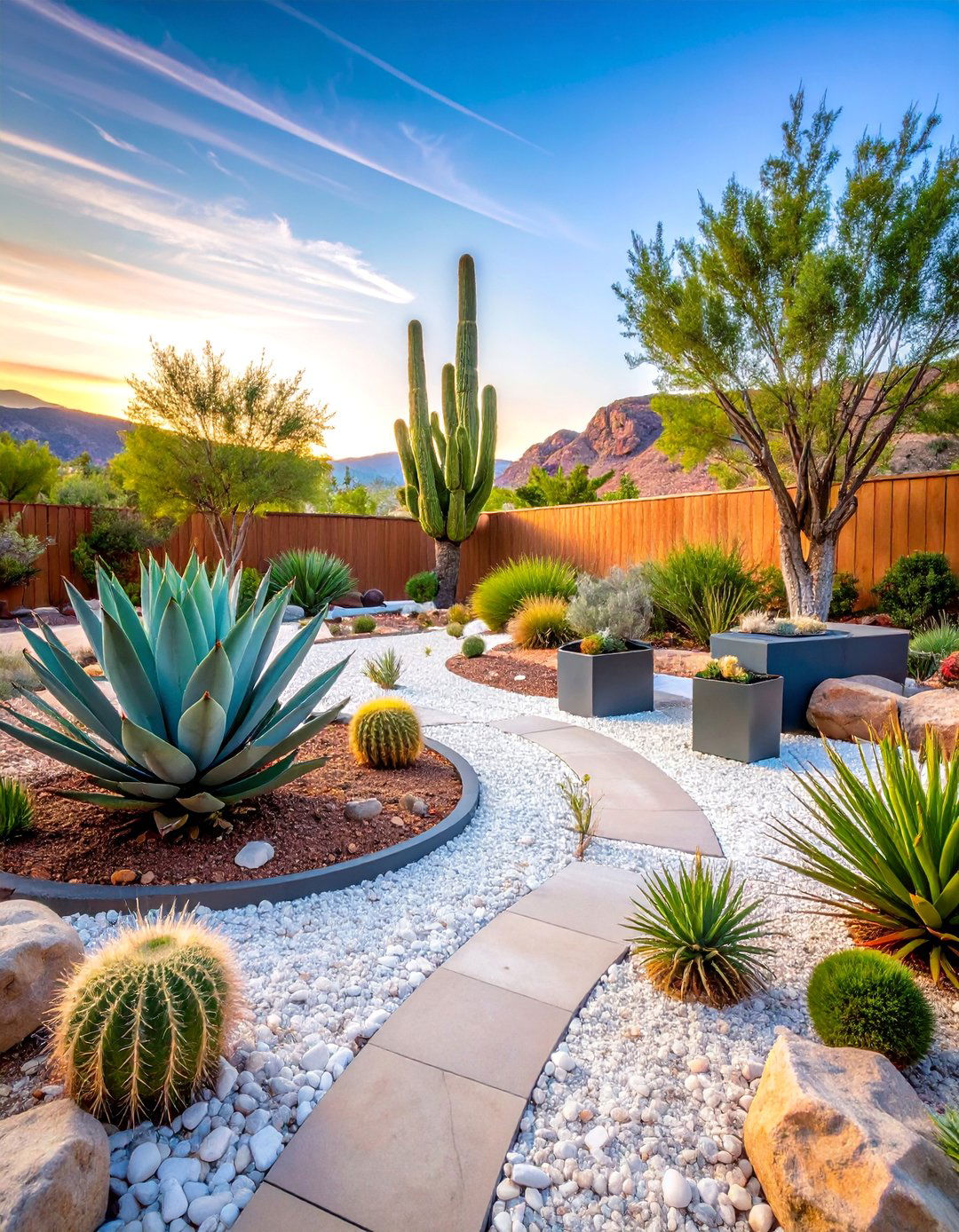
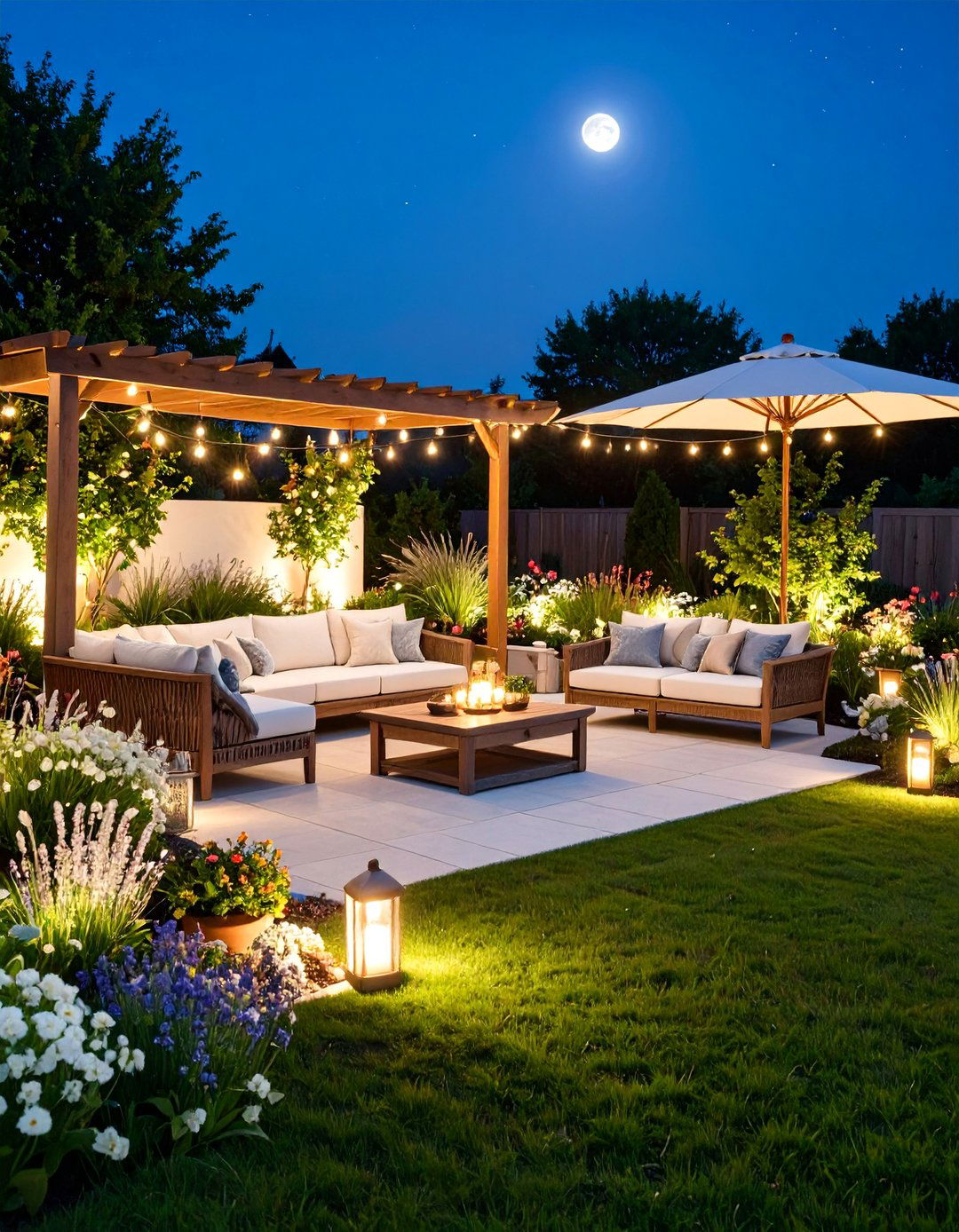
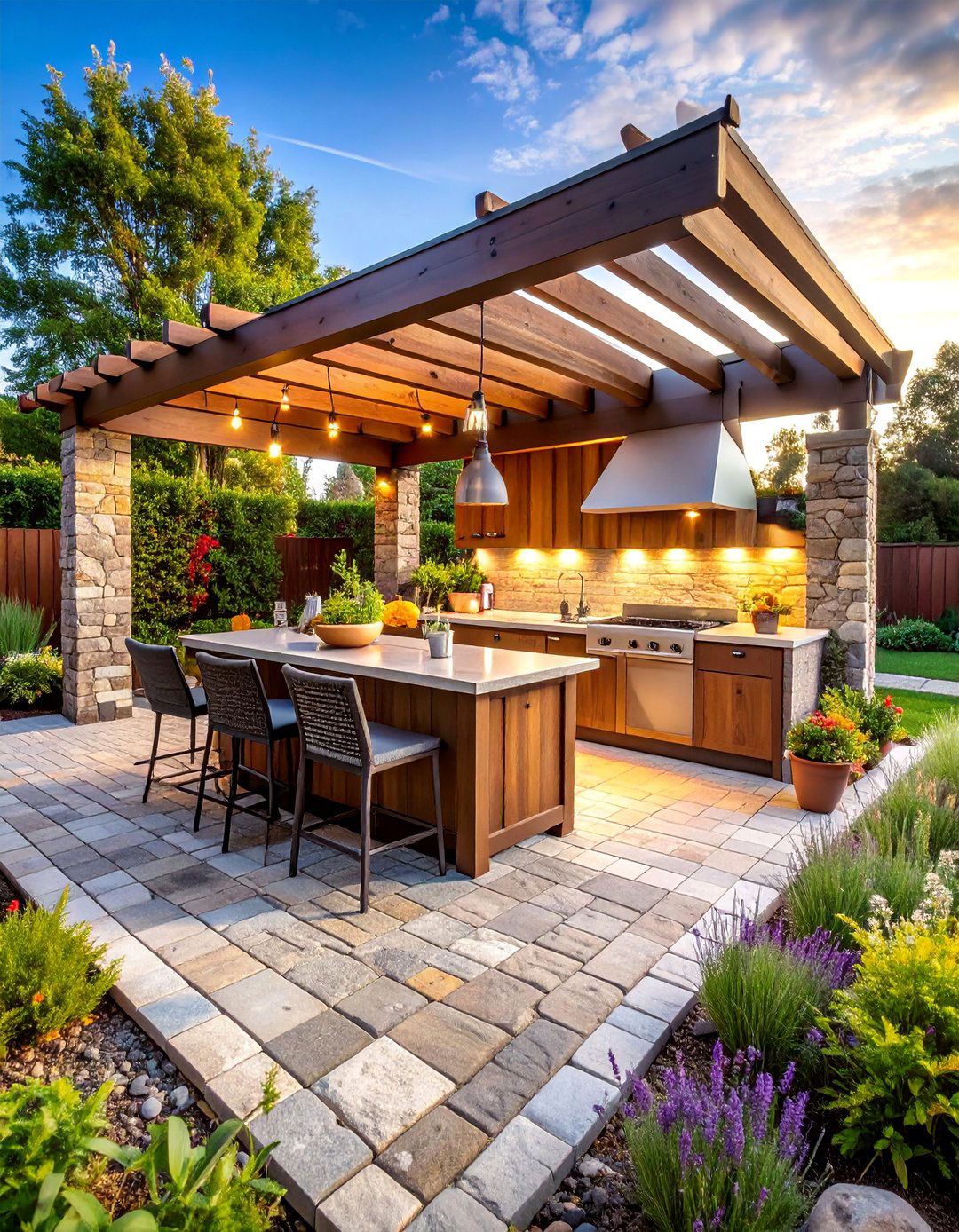




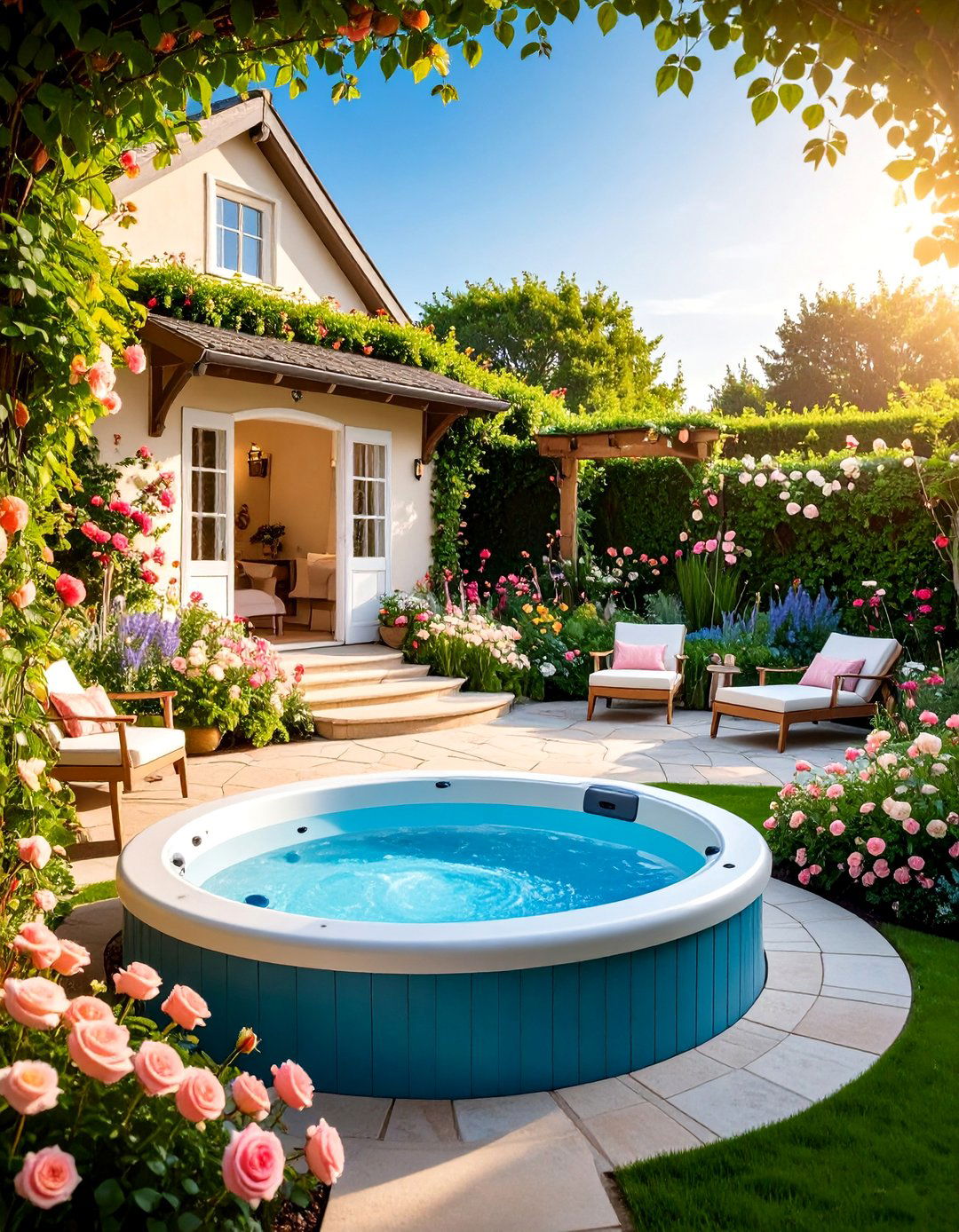


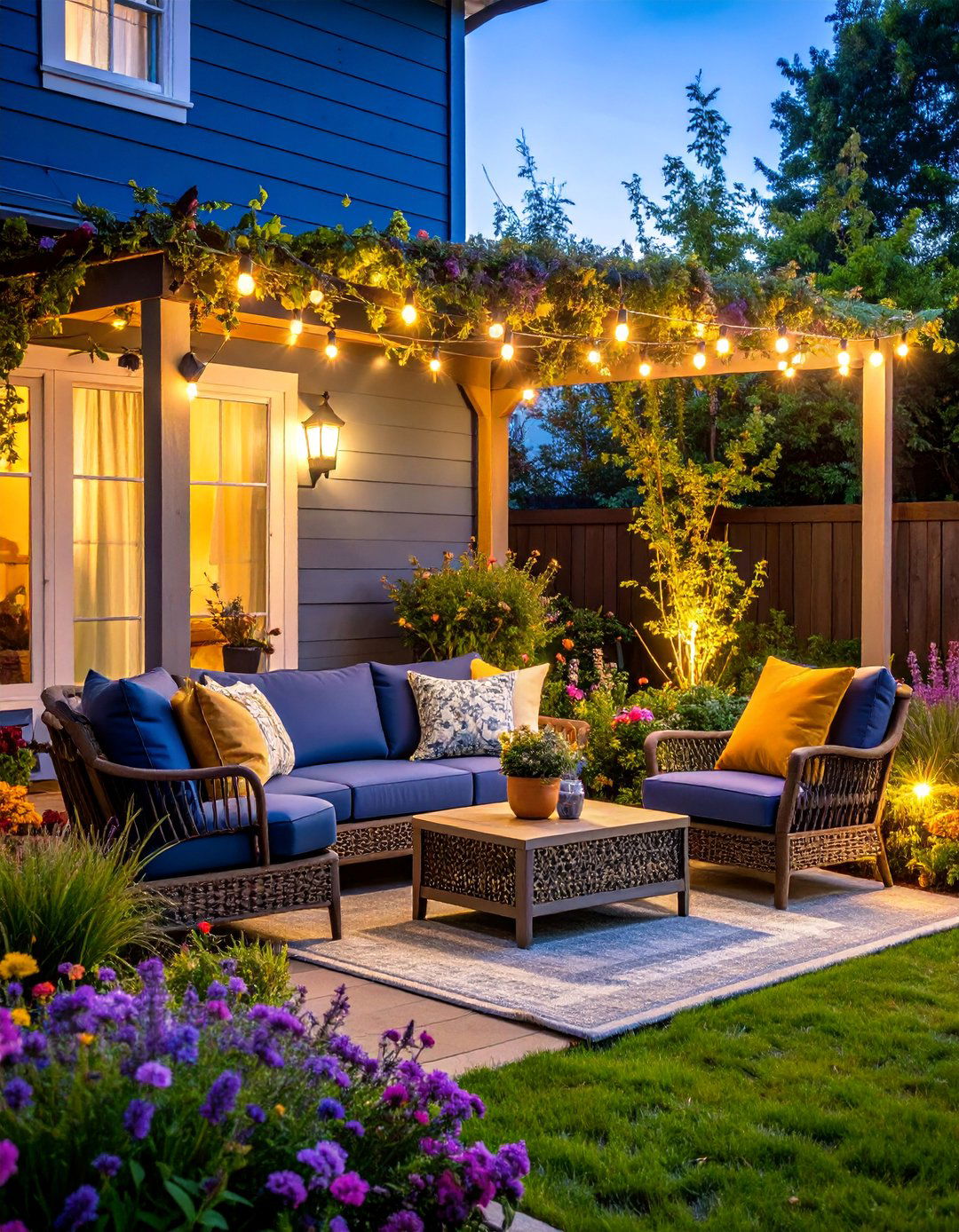
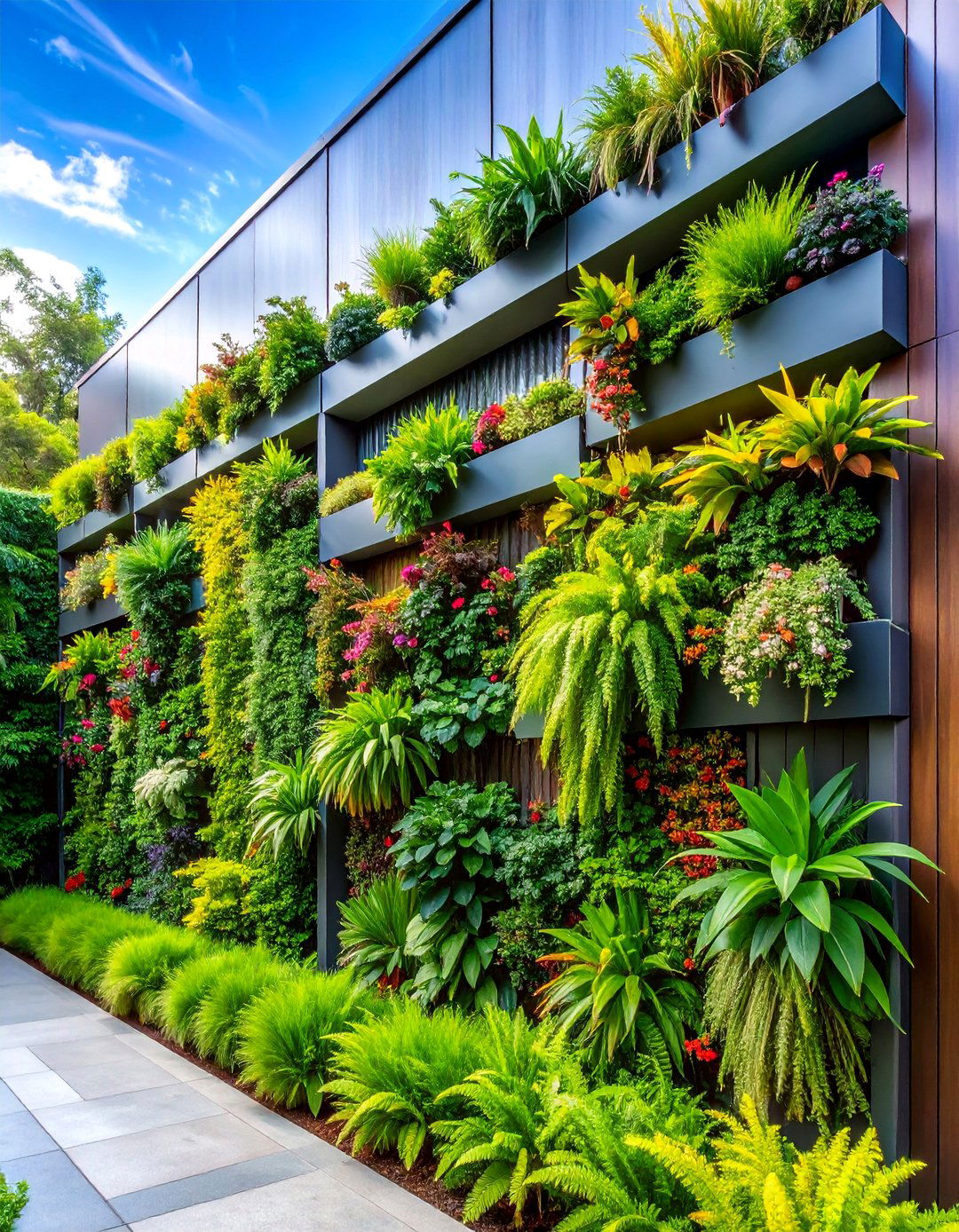

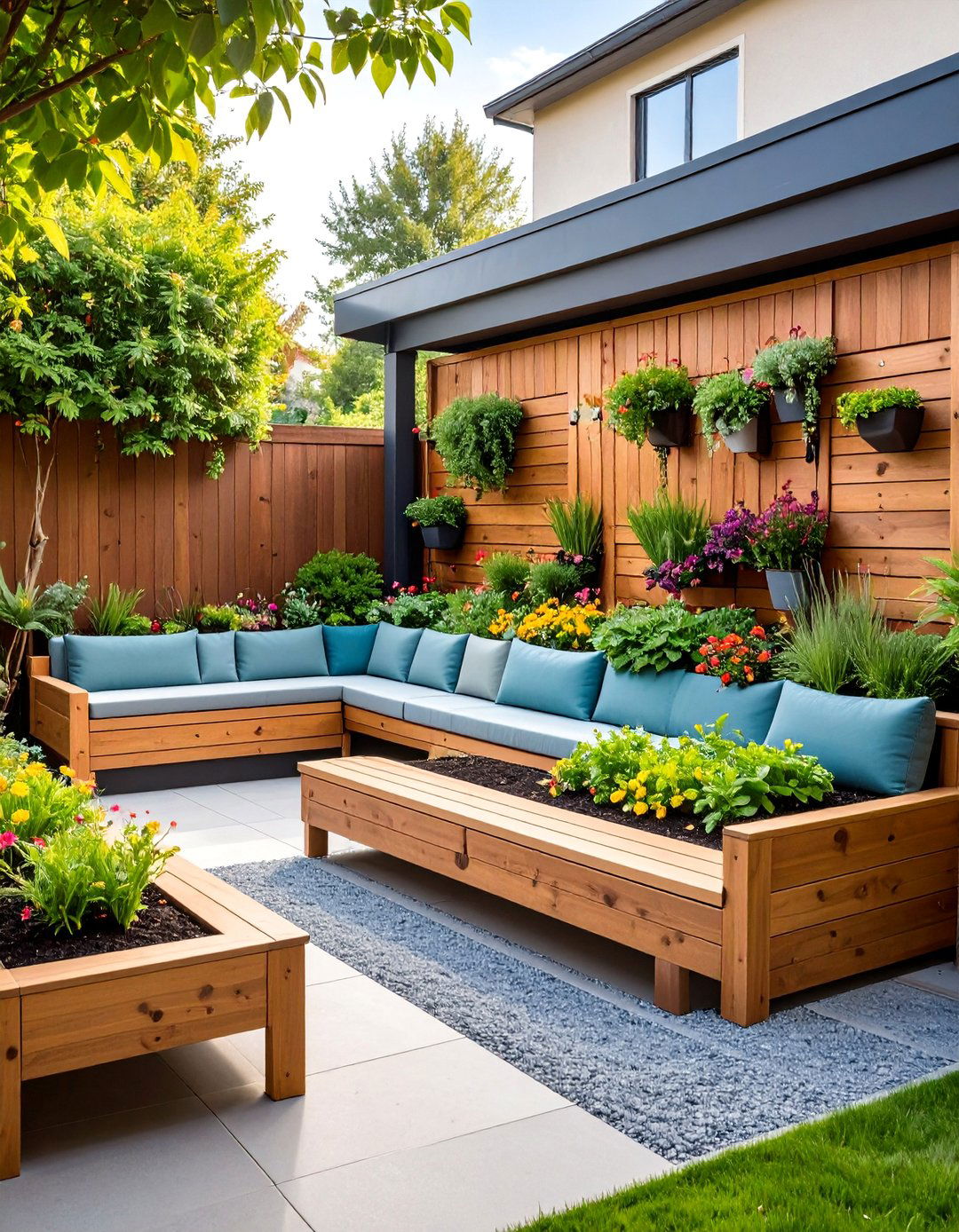
Leave a Reply